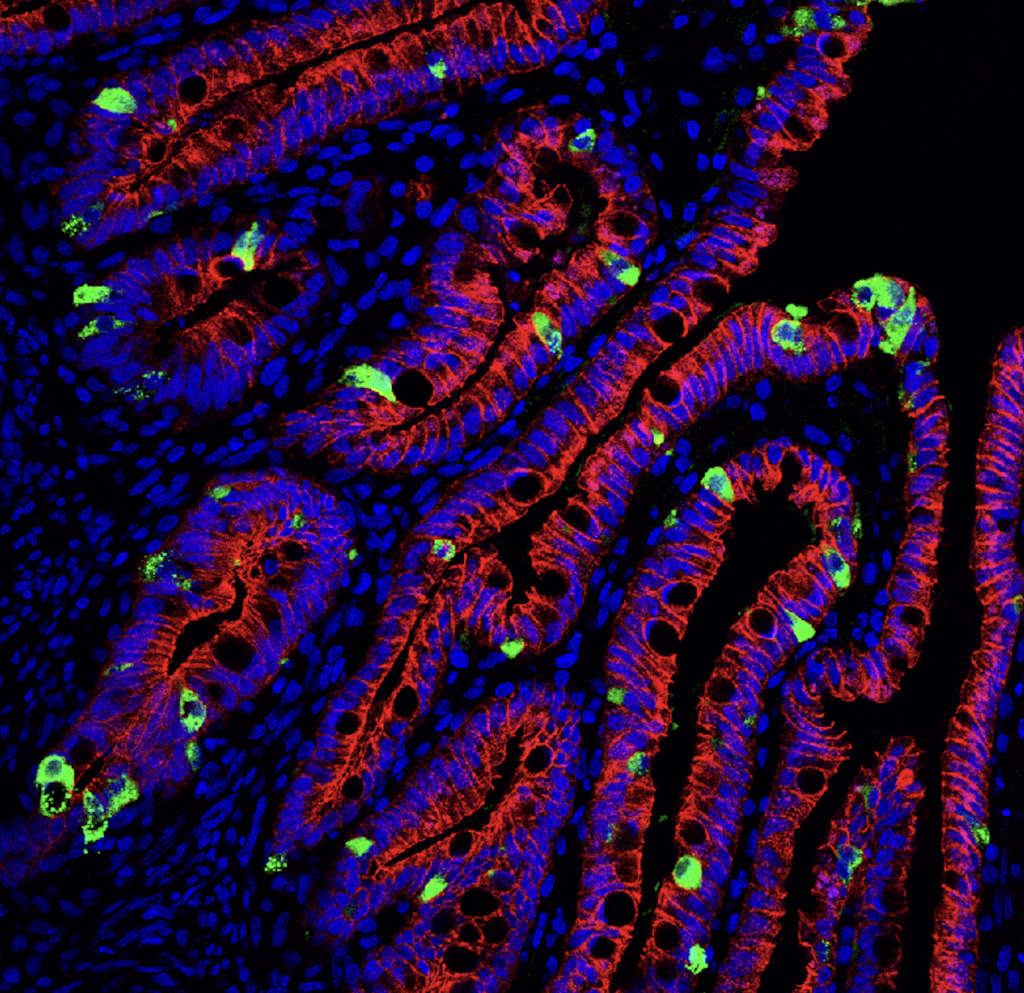
Gut function is intrinsically linked to overall health, as the nutrients we eat fuel all physiological functions throughout the body. Globally, more than 6.8 million people suffer from diminished gut function due to inflammatory bowel disease, and more than 1.9 billion people are overweight. High fat diets, obesity and inflammatory bowel diseases are all associated with changes in specialized hormone-secreting cells within the intestine called enteroendocrine cells (EECs). EECs sense nutrients passing through the gut and in turn secrete more than 20 hormones that act on local and distant targets to regulate hunger, satiety, gut motility, glucose homeostasis, digestive function, nutrient absorption, and whole-body metabolism. EECs are emerging as powerful new therapeutic targets for the treatment of type 2 diabetes for their potent effects on pancreatic insulin secretion and are also in development in pharmaceutical pipelines as anti-obesity drugs. However, the most common adverse side effect reported for these drugs is gastrointestinal distress, indicating that EECs play unappreciated roles in the gut. In fact, very little is known about how EECs regulate intestinal functions, like homeostasis, regeneration, and nutrient absorption. This fundamentally important area of biology is the focus of the McCauley Lab.
EECs are rare cells, only comprising about 1% of the intestinal epithelium, yet they exert potent effects. Loss of all EECs in human patients results in severe malabsorptive diarrhea with poor enteral macronutrient absorption. However, the mechanisms by which EECs control these essential processes have remained unknown, largely due to a lack of tractable model systems. We use pluripotent stem cell (PSC)-derived human intestinal organoids (HIOs) and animal models to investigate the causes for the malabsorption that occurs in patients without EECs and to find new roles for EECs in GI health and function. Our long-term research goal is to understand how the food we eat changes our physiology on a cellular level, with the overarching hypothesis that EECs are the linchpin connecting nutrient inputs to functional outputs. Because EECs are the first nutrient-sensing and metabolic signaling cells to be activated in response to a meal, and considering the staggering global prevalence of GI and metabolic diseases, the McCauley lab has the potential to fundamentally impact human health.